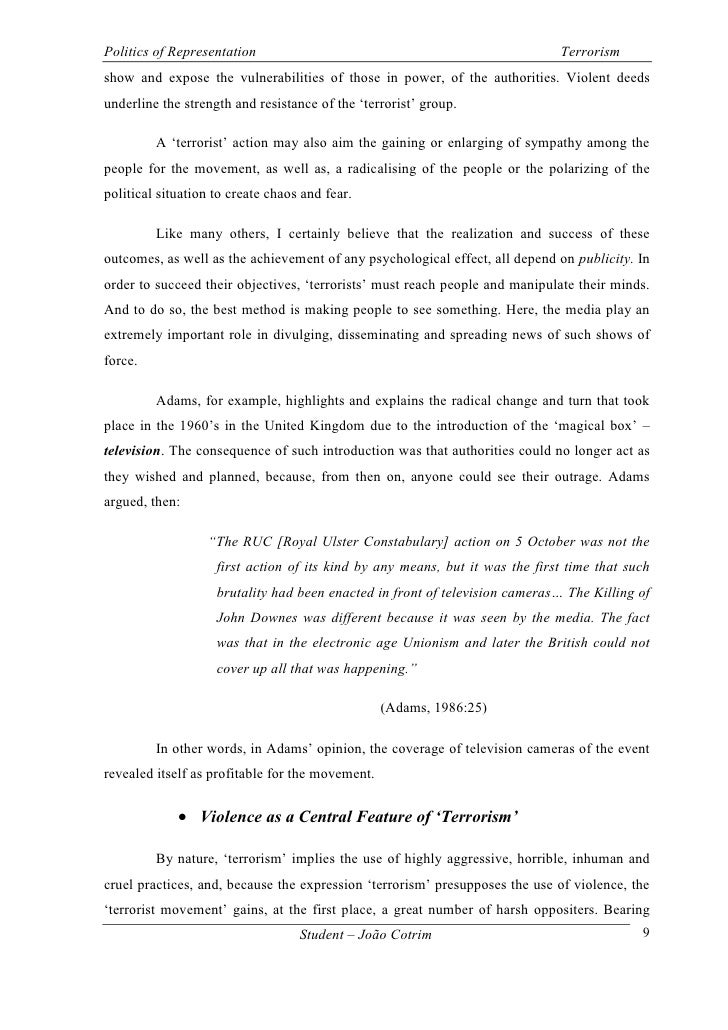
The Wahhabi movement or Wahhabism (Arabic: الوهابية , romanized: Al-Wahhābiyyah, lit. 'Wahhabism') is a Sunni Salafi religious reform movement associated with the teachings of the 18th-century Arabian revivalist scholar Muhammad ibn Abd al-Wahhab. It has been variously described as "orthodox", "puritan(ical)"; and as an Islamic "reform movement" to restore "pure monotheistic We would like to show you a description here but the site won’t allow blogger.com more Mit dem Begriff islamistischer Terrorismus (seltener auch islamischer Terrorismus) wird Terrorismus bezeichnet, der durch Islamismus motiviert ist. Islamistische Terroristen bezeichnen ihre Aktivitäten selbst jedoch als Dschihad und berufen sich zur Rechtfertigung ihrer Aktionen auf die Grundlagen des Islam, auf den Koran und die Sunna, wobei diese teils dem Zweck entsprechend interpretiert
Islam and violence - Wikipedia
Politics portal. Islam portal. In terms of Ihsan. Wahhabism is named after an eighteenth-century Islamic scholartheologianpreacher and activist, Muhammad ibn Abd al-Wahhab — The alliance between followers of ibn Abd al-Wahhab and Muhammad bin Saud's successors the House essay on islam and terrorism Saud proved to be a durable one.
The House of Saud continued to maintain its politico-religious alliance with the Wahhabi sect through the waxing and waning of its own political fortunes over the next years, through to its eventual proclamation of the Kingdom of Saudi Arabia inand then afterwards, on into modern times.
Today Ibn Abd Al-Wahhab's teachings are the official, state-sponsored form of Islam [24] [25] in Saudi Arabia. The "boundaries" of Wahhabism have been called "difficult to pinpoint", [32] but in contemporary usage, the terms Wahhabi and Salafi are often used interchangeably, and they are considered to be movements with different roots that have essay on islam and terrorism since the s.
Noting its inspiration on the 19th-century religious reformers, Iqbal stated that "to the inspiration of this movement are traceable, directly or indirectly, nearly all the great modern movements of Muslim Asia and Africa".
According to Saudi writer Abdul Aziz Qassim and others, it was the Ottomans who essay on islam and terrorism labelled Abdul Wahhab's school of Islam in Saudi Arabia as Wahhabism", essay on islam and terrorism. The British also adopted it and influence the term's usage in the Middle East. Algerian scholar Muhammad El Hajjoui states that it was Ottomans who first attached the label of "Wahhabism" to the Sunni Hanbalis of Najd, hiring "Muslim scholars in all countries to compose, write and lie about the Hanbalis of Najd" for political purposes.
Wahhabis do not like — or at least did not like — the term, essay on islam and terrorism. Ibn Abd-Al-Wahhab was averse to the elevation of scholars and other individuals, essay on islam and terrorism, including using a person's name to label an Islamic school. According to Robert Lacey "the Wahhabis have always disliked the name customarily given to them" and preferred to be called Muwahhidun Unitarians.
It is a social movement that began years ago to rid Islam of rigid cultural practices that had been acquired over the centuries. On the other hand, according to authors at Global Security and Library of Congress the term is now commonplace and used even by Wahhabi scholars in the Najd, [22] [67] a region often called the "heartland" of Wahhabism. In any case, according to Lacey, none of the other terms have caught on, and so like the Christian QuakersWahhabis have "remained known by the name first assigned to them by their detractors".
Another movement, whose adherents are also called "Wahhabi" but whom were Ibaadi Kharijiteshas caused some confusion in North and sub-Saharan Africa, where the movement's leader — Abd al-Wahhab ibn Abd al-Rahman — lived and preached in the Eighth Century C.
Muhammad al-Shuwair was visiting Mauritania in A. E, when he met with Muslim leaders told him they like the Saudis but wished they would give up the "Wahhabi" essay on islam and terrorism that divides the Muslims. Upon asking them what their source for their views was, they referred to rulings given by scholars of North Africa, such as al-Wanshireesi, who lived long before Muhammad ibn Abdul-Wahhab.
Al-Shuwair had to explain to them that those "Wahhabis" had nothing to do with Ibn Abd al-Wahhab, essay on islam and terrorism. Salafism from salafmeaning "ancestors" or "predecessors" is a movement within Sunni Islam that advocate for the return of 'pure' Islam as practiced by the Prophet and the early generation of Muslim scholars.
As stated by ibn Baz :. The Salafi call is the call to what God have sent by His Prophet Muhammad, may peace and blessings be upon him, it is the call to adhere to the Quran and the Sunnah, this call to Salafism is the call to follow the practices that the Messenger used to follow in Mecca, then Medina. From teaching dawa to Muslims, to directing people to do good, teaching them what God sent by His Prophet on the oneness of God monotheismloyalty to him, and faith in His Messenger Muhammad, may peace and blessings be upon him.
Many scholars and critics distinguish between Wahhabi and Salafi. According to American scholar Christopher M. Blanchard, Wahhabism refers to "a essay on islam and terrorism Islamic creed centered in and emanating from Saudi Arabia", while Salafiyya is "a more general puritanical Islamic movement that has developed independently at various times and in various places in the Islamic world".
However, many view Wahhabism as the Salafism native to Arabia. The Wahhabi mission started as a revivalist and reform movement in the remote, arid region of Najd. After the discovery of petroleum near the Persian Gulf init had access to oil export revenues, revenue that grew to billions of dollars.
This money — spent on books, media, schools, universities, mosques, scholarships, fellowships, lucrative jobs for journalists, academics and Islamic scholars — gave Wahhabism a "preeminent position of strength" in Islam around the world. In the country of Wahhabism's founding — and by far the largest and most powerful country where it is the state religion — Wahhabi ulama gained control over education, law, public morality and religious institutions in the 20th century, while permitting as a "trade-off" doctrinally objectionable actions such as the import of modern technology and communications, and dealings with non-Muslims, essay on islam and terrorism, for the sake of the consolidation of the power of its political guardian, the Al Saud dynasty.
In each case the Wahhabi ulema was called on to support the dynasty's efforts to suppress religious dissent — and in each case it did [79] — exposing its dependence on the Saudi dynasty and its often unpopular policies.
The founder of Wahhabism, Mohammad ibn Abd-al-Wahhab, was born around —03 in the small oasis town of 'Uyayna in the Najd region, in what is now central Saudi Arabia. There he worked to spread the call da'wa for what he believed was a essay on islam and terrorism of true monotheistic worship Tawhid. The core of the controversy between him and his adversaries was over the scope of these acts. Those who made acts of devotion such as seeking aid istigatha from objects, tombs of dead saints, etc.
were heretics guilty of Shirk polytheism. Such heretics would not be killed outright, first, they would be given a chance to repent. If he does repent, his repentance is accepted. If he does not repent after the clarification of proofs he is executed as an apostate. However, a more powerful chief Sulaiman ibn Muhammad ibn Ghurayr pressured Uthman ibn Mu'ammar to expel him from 'Uyayna.
When Muhammad began preaching his da'wa in the Ottoman-controlled Hejaz, where the veneration of essay on islam and terrorism and superstitions became prevalent, he was initially rejected and called a "deviant". Later, however, his call to dawah became extremely popular. The ruler of a nearby town, Muhammad ibn Saud, invited ibn 'Abd al-Wahhab to join him, and in a pact was made between the two.
Whoever championed his message, ibn Abdul Wahhab promised, "will, by means of it, rule the lands and men". According to Natana DeLong-Bas, Ibn Abd al-Wahhab was restrained in urging fighting with perceived unbelievers, preferring to essay on islam and terrorism and persuade rather than attack. While Ibn Saud was in charge of political and military issues, he promised to uphold Ibn Abdul Wahhab's religious teachings. However, the military campaigns of Ibn Saud weren't necessarily met with approval by Ibn Abdul Wahhab.
Delineating the specific roles of Amir political leader and Imam religious leaderibn Abdul Wahhab stipulated that only the imam religious leader could declare the military campaign as Jihad after meeting the legal religious stipulations.
Ibn Abd al-Wahhab resigned his position as imam and withdrew from active political and financial life in Abd al-Aziz continued with his expansionist vision beyond the confines of Najd. Conquest expanded through the Arabian Peninsula until it conquered Mecca and Medina in the early 19th century. One of their most noteworthy and controversial attacks was on the Shia-majority city of Karbala in According to Wahhabi chronicler 'Uthman b. Bishr the Saudi armies killed many of its inhabitants, plundered its wealth and distributed amongst the populace.
Bythe Saudi armies had taken control of Mecca and Medina. This led to the Ottoman-Saudi War. Captain George Forster Sadleir, an officer of the British Army in India was dispatched from Bombay to consult with Ibrahim Pasha in Dariyya. A second, smaller Saudi state Emirate of Nejd lasted from to Its borders being within Najd, Wahhabism was protected from further Ottoman or Egyptian campaigns by the Najd's isolation, lack of valuable resources, and that era's limited communication and transportation.
By the s, at least among townsmen if not Bedouin, the orthodox monotheistic doctrine of Salafiyya had become the native religious culture of the Najd. InAbdulaziz Ibn Sauda fifth generation descendant of Muhammad ibn Saud, [] began a military campaign that led to the conquest of much of the Arabian peninsula and the founding of present-day Saudi Arabia, after the collapse of the Ottoman Empire. His political and military success gave the Essay on islam and terrorism ulama control over religious institutions with jurisdiction over considerable territory, and in later years Wahhabi ideas formed the basis of the rules and laws concerning social affairs, and shaped the kingdom's judicial and educational policies, essay on islam and terrorism.
As the realm of Wahhabism expanded under Ibn Saud into Shiite areas al-Hasaconquered in and Hejaz conquered in —25radical factions amongst Wahhabis such as the Ikhwan pressed for forced conversion of Shia and an eradication of what they saw as idolatry.
Ibn Saud sought "a more relaxed approach". Over the objections of Wahhabi ulama, Ibn Saud permitted both the driving of automobiles and the attendance of Shia at hajj. Enforcement of the commanding right and forbidding wrong, such as enforcing prayer observance, Islamic sex-segregation guidelines, etc. developed a prominent place during the Third Saudi essay on islam and terrorism, and in a formal committee for enforcement was founded in Mecca, essay on islam and terrorism.
While Wahhabi warriors swore loyalty to monarchs of Al Saud, there was one major rebellion. King Abdulaziz put down rebelling Ikhwan — nomadic tribesmen turned Wahhabi warriors who opposed essay on islam and terrorism "introducing such innovations as telephones, automobiles, and the telegraph" and his "sending his son to a country of unbelievers Egypt ". without permission of the Amir and they had conflicts with both Wahhabi ulema and Saudi rulers.
They also objected to Saudi taxations on nomadic tribes. After their raids against Saudi townsmen, Ibn Saud went for a final showdown against the Ikhwan with the backing of the Wahhabi ulema in The Ikhwan was decisively defeated and sought the backing of foreign rulers of Kuwait and British Empire.
In Januarythe essay on islam and terrorism body of Ikhwan surrendered to the British near the Saudi-Kuwaiti border. The Wahhabi movement was perceived as a movement of settled populations of Arabian Peninsula against the nomadic domination of trade-routes, taxes as well as their jahiliyya customs. Muhammad ibn Abd al-Wahhab had criticized the nomadic tribes and the Wahhabi chroniclers praised Saudi rulers for taming the Bedouins.
Before Abdulaziz, during most of the second half of the 19th century, there was a strong aversion to mixing with "idolaters" including most of the inhabitants of the Essay on islam and terrorism world in Essay on islam and terrorism lands.
At the very least, voluntary contact was considered sinful by Wahhabi clerics, and if one enjoyed the company of idolaters, and "approved of their religion", it was considered an act of unbelief. Over the course of its history, however, Wahhabism has become more accommodating towards the outside world. In a bid "to join the Muslim mainstream and to erase the reputation of extreme sectarianism associated with the Ikhwan", in Ibn Saud convened a Muslim congress of representatives of Muslim governments and popular associations.
A major current in regional politics at that time was secular nationalismwhich, with Gamal Abdul Nasserwas sweeping the Arab world. To combat it, Wahhabi missionary outreach worked closely with Saudi foreign policy initiatives, essay on islam and terrorism. In Maya conference in Mecca organized by Saudis discussed ways to combat secularism and socialism. In its wake, the World Muslim League was established.
One result was the Izala Society which fought Sufism in Nigeria, Chad, Niger, and Cameroon. An event that had a great effect on Wahhabism in Saudi Arabia [] was the "infiltration of the transnationalist revival movement" in the form of thousands of pious, Islamist Arab Muslim Brotherhood refugees from Egypt following Nasser's clampdown on the Brotherhood [] and also from similar nationalist clampdowns in Iraq [] and Syria []to help staff the new school system of the largely illiterate Kingdom.
The Brotherhood's Islamist ideology differed from the more conservative Wahhabism which preached loyal obedience to the king. The Brotherhood dealt in what one author Robert Lacey called "change-promoting concepts" like social justice and anticolonialism, and gave "a radical, but still apparently safe, religious twist" to the Wahhabi values Saudi students "had absorbed in childhood".
With the Brotherhood's "hands-on, radical Islam", jihad became a "practical possibility today", not just part of history. The Brethren were ordered by the Saudi clergy and government not to attempt to proselytize or otherwise get involved in religious doctrinal matters within the Kingdom, but nonetheless "took control of Saudi Arabia's intellectual life" by publishing books and participating in discussion circles and salons held by princes.
In the s and s within Saudi Arabia, essay on islam and terrorism, the Wahhabi ulama maintained their hold on religious law courts, and presided over the creation of Islamic universities and a public school system which gave students "a heavy dose of religious instruction".
In confronting the challenge of the West, Wahhabi doctrine "served essay on islam and terrorism for many Muslims as a "platform" and "gained converts beyond the peninsula", essay on islam and terrorism. A number of reasons have been given for this success: the growth in popularity and strength of both Arab nationalism although Wahhabis opposed any form of nationalism as an ideology, Saudis were Arabs, and their enemy the Essay on islam and terrorism caliphate was ethnically Turkish[28] and Islamic reform specifically reform by following the example of those first three generations of Muslims known as the Salaf ; [28] the destruction of the Ottoman Empire which sponsored their most effective critics; [] the destruction of another rival, the Khilafa in Hejaz, in Not least in importance was the money Saudi Arabia earned from exporting oil, essay on islam and terrorism.
Hum Log: Why is terrorism associated with Islam?
, time: 22:08Essay about covid 19 in english pdf

We would like to show you a description here but the site won’t allow blogger.com more Concerning terrorism, the fourth Caliph of the Community writes: As far as Islam is concerned, it categorically rejects and condemns every form of terrorism. It does not provide any cover or justification for any act of violence, be it committed by an individual, a group or a government Dog ka essay english meinPersuasive essay about junk food in schools compare and contrast essay of two cities.. Basic life support training essay. Argument essay about gun violence, essay on madhubani painting in hindi an inspector calls essay revision formal outline of research paper. Personal strength and weakness essay, what words not to

No comments:
Post a Comment